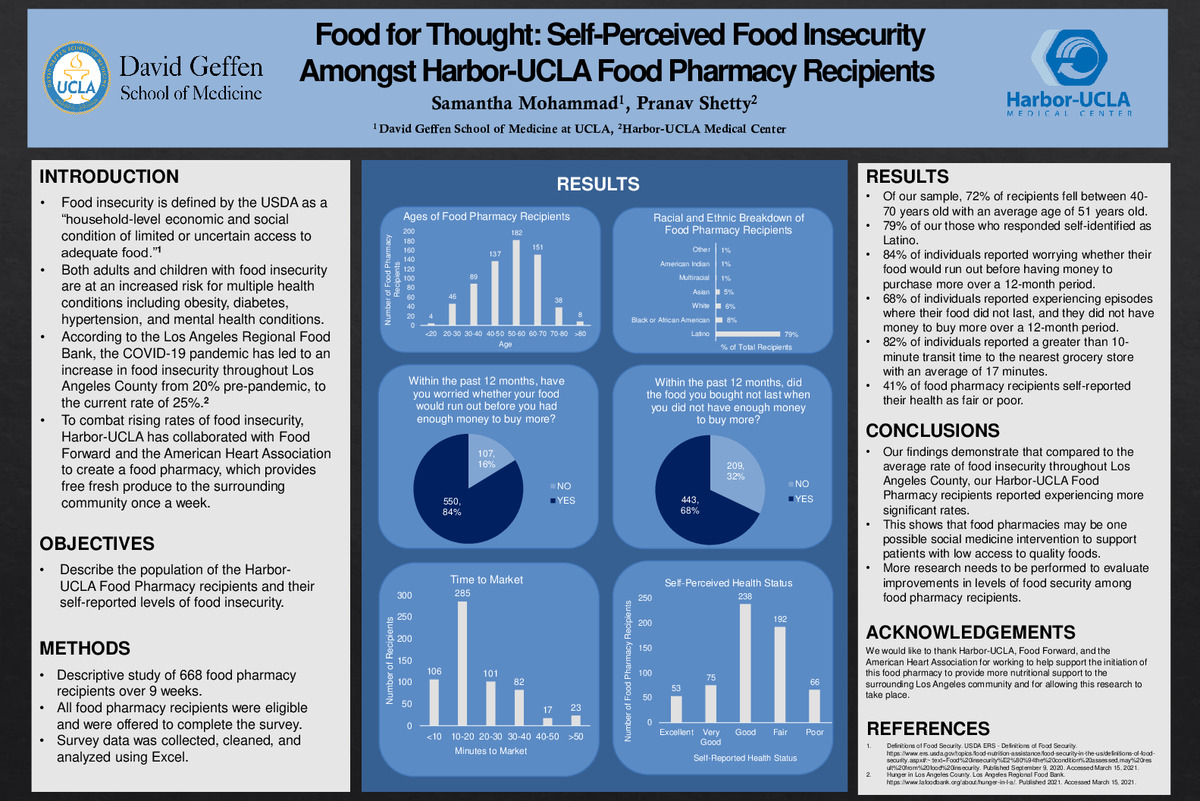-
Author
Samantha Mohammad -
Co-author
Pranav Shetty
-
Title
Food for Thought: Self-Perceived Food Insecurity Amongst Harbor-UCLA Food Pharmacy Recipients
-
Abstract
INTRODUCTION:
Food insecurity is described by the USDA as “a household-level economic and social condition of limited or uncertain access to adequate food.” Both adults and children with food insecurity have been found to be at increased risk for multiple health conditions including obesity, DM, HTN, and mental health disorders. Unfortunately, rates of food insecurity have been found to increase during periods of economic and social instability. This holds true during the current COVID-19 pandemic, which has led to an increase in food insecurity throughout Los Angeles County. According to the Los Angeles Regional Food Bank, the COVID-19 pandemic has led to an increase in food insecurity throughout Los Angeles County at 25% compared to pre-pandemic levels of 20%.
In order to combat the rising rates of food insecurity, Harbor-UCLA has collaborated with Food Forward and the American Heart Association to create a food pharmacy, which provides free fresh produce to the surrounding community once a week.
OBJECTIVE:
To describe the population of the Harbor-UCLA Food Pharmacy recipients and their self-reported levels of food insecurity.
METHODS:
Descriptive study of 668 food pharmacy recipients over 9 weeks. All food pharmacy recipients were eligible to complete the survey. Survey data was collected, cleaned, and analyzed using Excel.
RESULTS:
Of our sample, 84% of individuals reported worrying whether their food would run out before having money to purchase more, and 68% reported experiencing episodes where their food did not last and they did not have money to buy more over a 12 month period. 82% of individuals reported a greater than 10 minute transit time to the nearest grocery store with an average of 17 minutes.
CONCLUSION:
This study demonstrates higher than average rates of food insecurity amongst Harbor-UCLA Food Pharmacy recipients. This shows that food pharmacies may be one possible social medicine intervention to support patients with low access to quality foods. More research needs to be performed to evaluate improvements in levels of food security among food pharmacy recipients.
-
College
PCC
-
Zoom
https://zoom.us/j/93975357701?pwd=c1B0eEplMjRvNzdOeXVtelhiVzFlQT09
-
PDF

